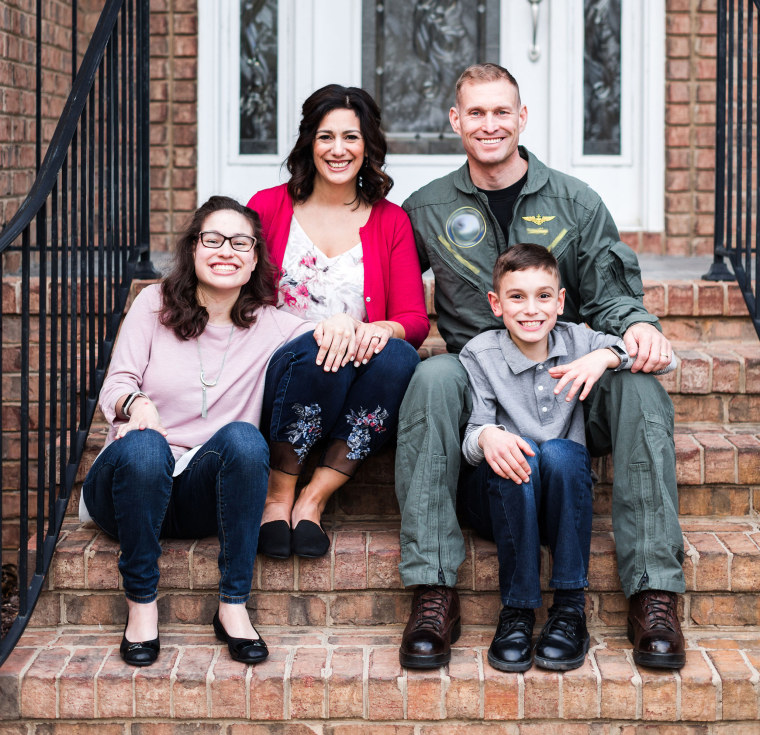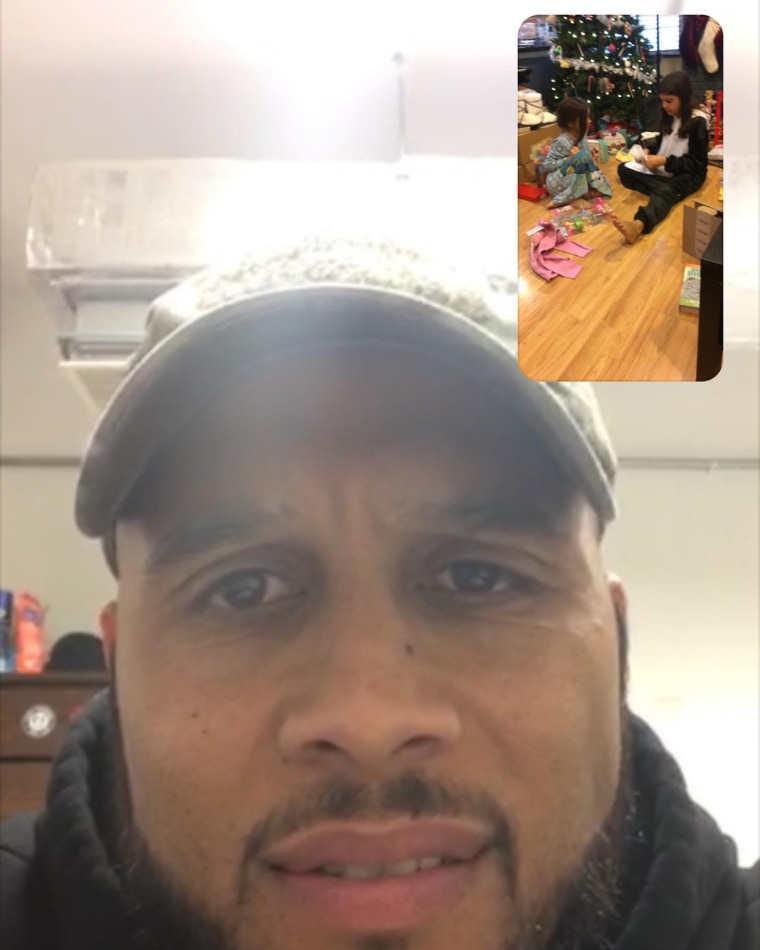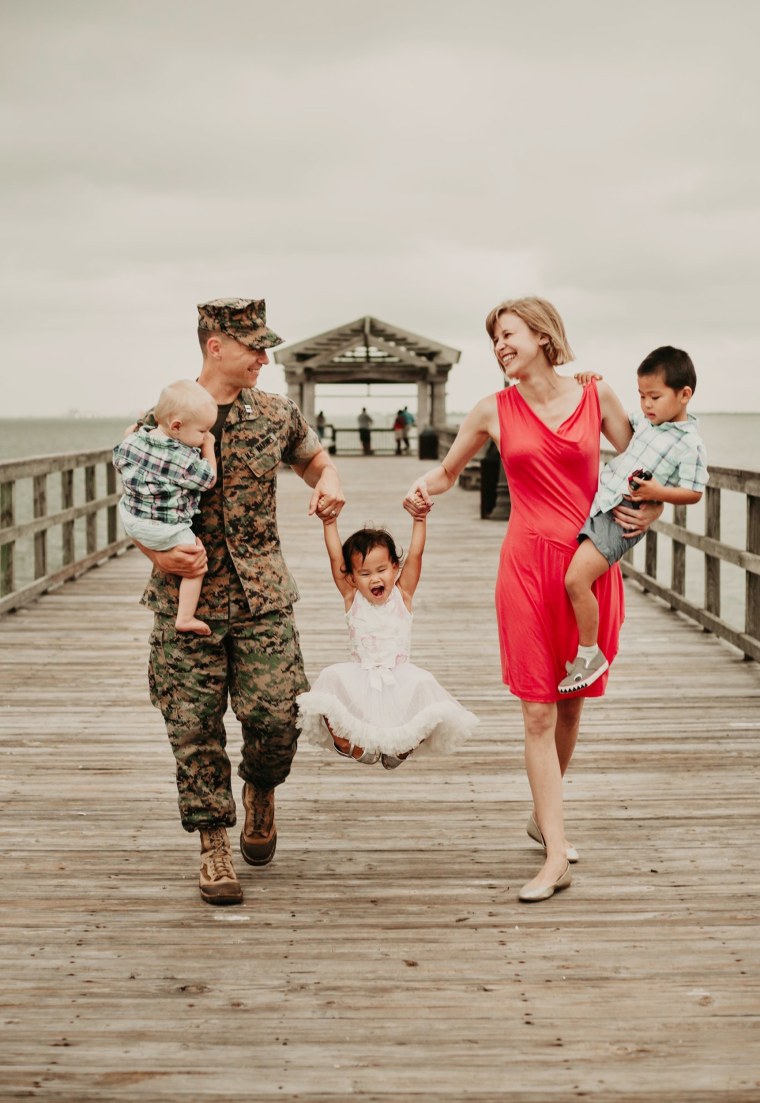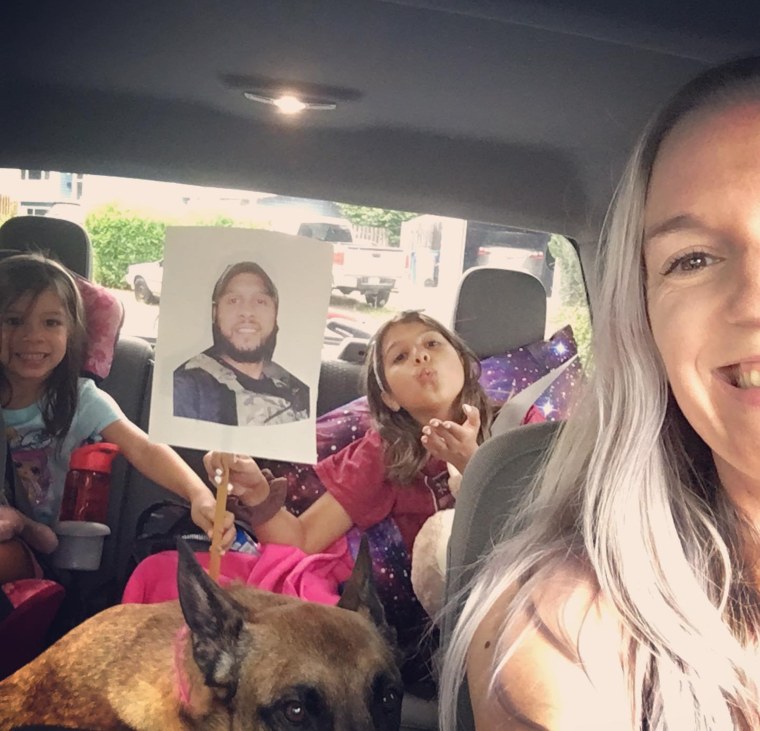Michelle Norman’s husband has been deployed with the U.S. Navy almost a dozen times during his 25 years of service. At this point, she doesn’t even keep track of the short deployments he’s had. Still, saying goodbye always feels tough.
“It’s not easy no matter how many years we’ve been in this lifestyle,” Norman, 49, an advocate for military children with special needs, told TODAY Parents. “My husband just left today, actually. He was here on holiday leave, a very short visit we thought would be a little longer. But he was recalled back.”

While Norman has learned to expect the unexpected, her children, Marisa, 16, and Chace, 10, still feel upset.
“It was tough because the kids thought he would be around a little longer,” she explained.
No matter how much experience a family has, preparing for a military deployment is challenging. But managing information and expectations can help children cope with a parent’s absence.
“How I perceive deployment impacts (them),” said Norman, who lives in Virginia. “Our children feed off of whatever my feelings are.”
Norman keeps her children away from TV and social media as much as she can — especially when something frightening happens, such as Iran's ballistic missile attacks on military bases housing U.S. forces in Iraq.
“There’s really a lot of hype around current events that I really don’t want my children to hear about. If anything, we listen more to morning radio,” she said. “The visual piece brings up images that I don’t want them to see.”
Doni Negron is another military spouse who avoids some news. She said it’s too hard to hear what’s happening when she’s not even sure where her husband is deployed. She bristles when people ask her about current events, politics or strategy.
“People are going to ask me for the insider scoop on the Middle East. I don't really care about any of that. I just care about him and our other soldiers,” the 37-year-old Pacific Northwest mom told TODAY Parents.

She just learned that her husband’s deployment was extended and she had to explain it to her daughters, Mia, 9, and Juliana, 6. She didn’t want to worry them, so she told them the weather made it hard for planes to leave.
“Little white lies in situations like this — it's sometimes best,” she said.
Shielding children from scary information is just one way military families handle the unknown. They also find creative ways to mark holidays, concerts, graduations and the small but important moments parents miss while serving. At least two or three times a week, Caitlin Cameron’s husband wakes up early where he's deployed so he can video chat with his children and put them to bed.
“It's still really nice to be able to do that,” the 30-year-old Florida mom told TODAY Parents.
Before he left, Cameron and their three children, Kai, 4, Mika, 3, and Logan, 20 months, took family photos and spent several days doing things they would do as a family if he were still at home. They visited the zoo, went fishing and played at the park.
“Anything that we love to do as the family we tried to do,” she said. “My favorite thing that we did was a photo shoot. ... That's really special to me, just having those pictures.”
Cameron shares photos and videos with her husband so he feels like he isn’t missing out too much. Such regular communication can help ease some of the stress. Negron's husband was able to video chat on Christmas morning, so it was almost like he was there as the girls tore into their gifts.
“It was awesome,” she said.

Many military parents say asking their children what they want also can ease some stress. Negron’s children wanted to be able to communicate with their dad as much as possible, so they have their own devices just for that.
“They have their own time, their own relationship, their own conversations with him. That makes them feel a little bit more in control,” Negron said.
Having support from family, friends and the community helps as well. While each family might need different help, military parents agree that asking whether the family needs support or is OK goes a long way.
“It's just more like recognizing that this is somewhat challenging,” Norman said. "It is very difficult for us to sometimes reach out for help."
Inviting military families for dinner or offering to watch the kids while they run to Target, for example, is a great way to support them. Families often cannot talk about their spouses' deployments, so some prefer it if people just generally ask how they are.

“I don't like when people bring up ... the service member or the conflict,” Negron said. “Without pressure, just state the obvious, ‘Hey, I know there's a lot going on right now. I'm sure it you're stressed out and I just want to let you know if there's anything you need, I'm here for you.’”
Never miss a parenting story with the TODAY Parenting newsletter! Sign up here.
Related video:

